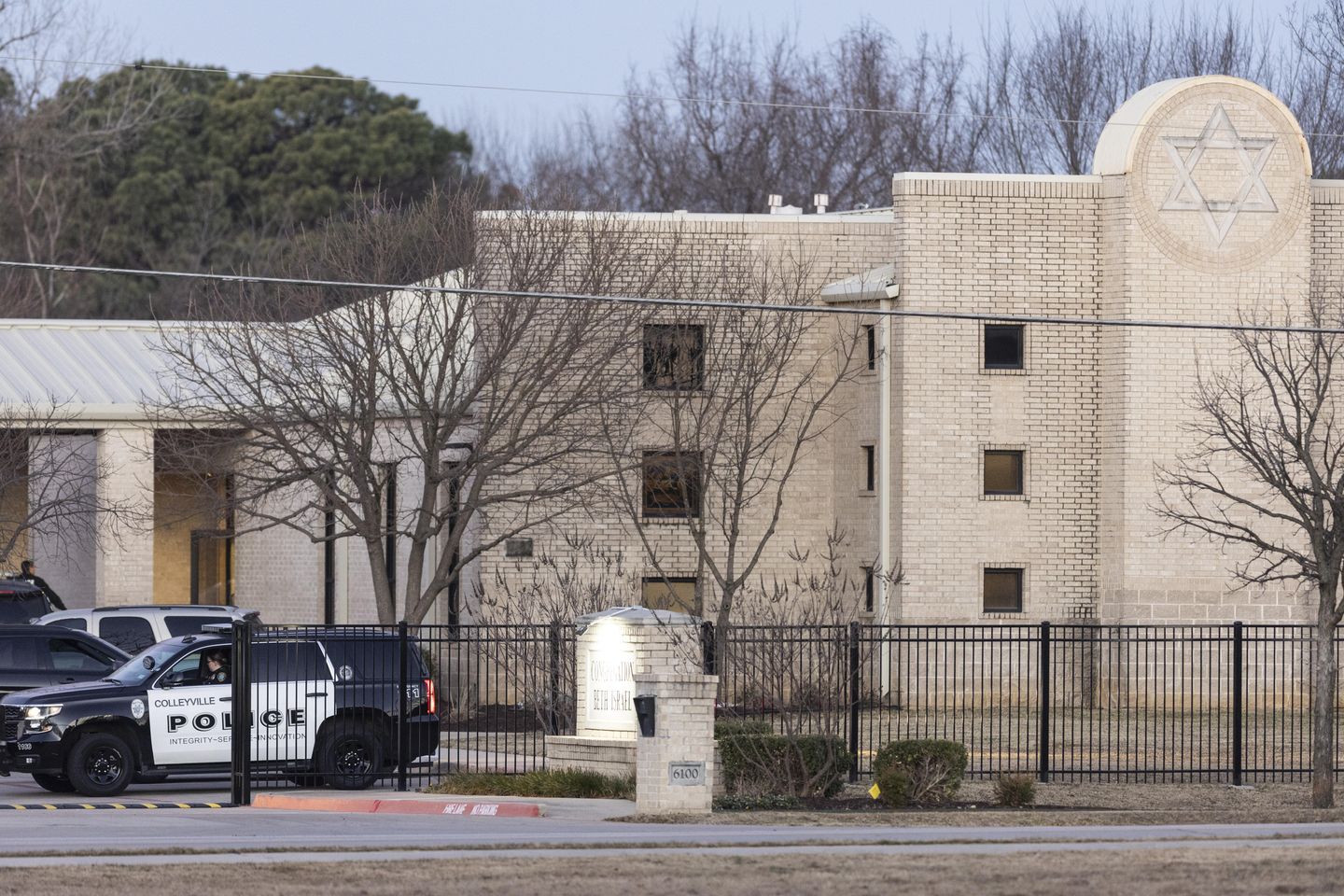

The 11-hour hostage situation at a Texas synagogue this weekend will prompt increased vigilance at Jewish congregations and other organizations, security experts say.
Richard Priem is deputy national director of Community Security Service (CSS), which trains volunteers to help protect synagogues, schools and community events. He said incidents such as the hostage-taking at Congregation Beth Israel in Colleyville, Texas, are no longer novel in the U.S.
“We’ve seen anti-Semitic incidents [number] over 2,000 a year reported by [the Anti-Defamation League] for several years now. It’s among the highest that they have been tracking in the last 40 years,” said Mr. Priem, a former counterterrorism expert for the U.N. Security Council. “So we need to have an understanding that incidents like this can happen anywhere.”
<!– Temp removal of in article reco
End comment –>
Building “situational awareness” among congregations is key, he said, citing attacks at synagogues in Pittsburgh, Pennsylvania, and Poway, California, as well as anti-semitic attacks in Jersey City, New Jersey, and Monsey, New York.
“In many of these attacks, the perpetrator could walk right into the synagogue,” Mr. Priem said.
“There are things that can be done on the law enforcement side, there are things trained security volunteers can do,” he added.
But fully securing a house of worship is not an easy task, said retired Las Vegas police Lt. Ray Sutton.
“There are thousands upon thousands of houses of worship in this country [and] target hardening is kind of difficult, when you’re dealing with religious congregations,” said Mr. Sutton, who heads The Wounded Blue, a nonprofit that helps injured officers.
He advises congregations to work with law enforcement in “creating the awareness and developing a relationship with local police and having them come to the location, actually looking at the physical layout, [and] understanding what the beliefs are of the congregation.”
On Saturday, an armed man took hostage four members of the Reform Jewish congregation in Colleyville during services. One hostage was freed during the 11-hour standoff with police, and the others, including Rabbi Charlie Cytron-Walker, were released when law enforcement entered the synagogue.
The hostage-taker, identified Sunday by the FBI as Malik Faisal Akram, a 44-year-old British citizen, died at the scene.
Rabbi Moshe Hauer, executive vice president of the Orthodox Union, one of the largest Orthodox Jewish groups in the U.S., said Sunday in a telephone interview that attacks such as Colleyville show “why we must continue to work to advocate for vigilance within that support from governments and law enforcement, in being able to protect houses of prayer of all faiths.”
“It is now necessary for many congregations to employ security guards because there’s limited local police protection,” he said.
Rabbi Hauer noted the federal Nonprofit Security Grant Program (NSGP), which the Orthodox Union helped champion in 2005, as one element of enhancing security at houses of worship. The program received $180 million in grant money during the current fiscal year. His group has called for the amount of grant money to be doubled next fiscal year, he added.
